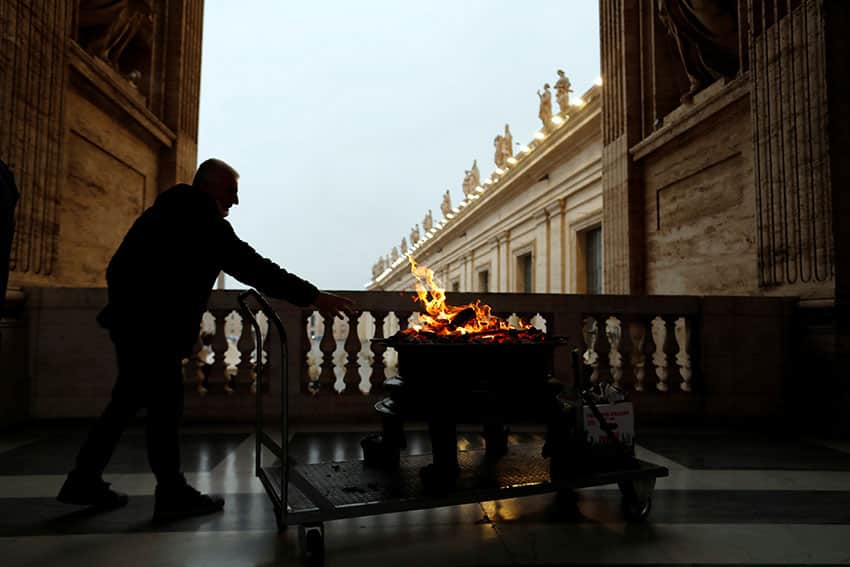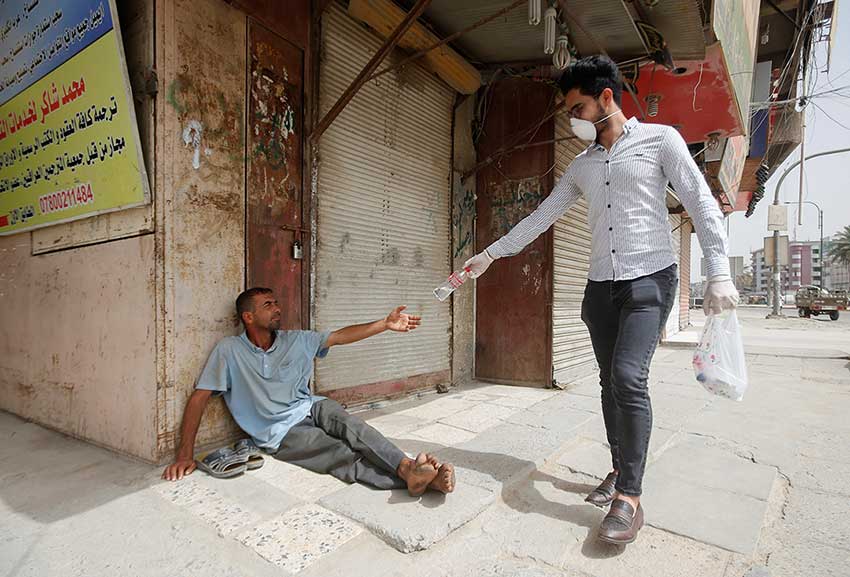
I miss Mass. I miss the sound and smell, the bells, the music, the incense and the people.
I know God wants me to go to Church. God wants to give me forgiveness, mercy and salvation every time.
So it feels very strange to see the Church doors shut. It feels very strange to miss a Sunday Mass. How could the government shut the Church doors? How could the bishops urge us to respect the shutdown? Does not God want us to worship Him? Is not God always happy with our worship? According to the prophet Amos, it seems not. Not in some cases. In Amos 5, God says:
“I hate, I despise your feasts,
and I take no delight in your solemn assemblies.
Even though you offer me your burnt offerings and cereal offerings,
I will not accept them,
and the peace offerings of your fatted beasts
I will not look upon.
Take away from me the noise of your songs;
to the melody of your harps I will not listen. (Amos 5:21-23)
God tells Israel to cease worship?
In Amos’s time, God seems to be telling His people to stop worshipping. It is not that worship of God in his Temple is a bad thing. It is not. It is not that their songs, prayers and incense is a bad thing, they are not. True worship of God is the first and most important priority of Christian life. The bells, incense and music that accompany sacred liturgy are part of our proper reverence for God.
The problem, for Amos, is that the people he is addressing are neglecting and mistreating the widows and orphans, the poor and vulnerable, but still showing up to worship in the temple. Through the Prophet Amos, God makes it clear that the neglect of the most vulnerable in our community is incompatible with true worship of God. In fact, God says that such worship is abhorrent to Him!

We see a similar story in the first chapter of Isaiah, where God refuses the worship of people who have contributed to the exploitation and even the death of the poor. No doubt many in Isaiah’s audience would claim that they did not personally cause the poor to suffer. They were living their lives, managing their investments or going about their occupations, and coming to worship as pious people do. But to them God says:
“What to me is the multitude of your sacrifices?
says the Lord;
I have had enough of burnt offerings of rams
and the fat of fed beasts;
I do not delight in the blood of bulls,
or of lambs, or of he-goats.
“When you come to appear before me,
who requires of you
this trampling of my courts?
Bring no more vain offerings;
incense is an abomination to me…
When you spread forth your hands,
I will hide my eyes from you;
even though you make many prayers,
I will not listen;
your hands are full of blood. (Isa 1:11-15)
What then of our situation? The best medical and scientific evidence available tell us that gathering for public worship will contribute to the spread of a dangerous disease. The disease is particularly deadly for people who are the most vulnerable in our community; the old, the young and middle aged with diabetes, asthma, heart conditions, disabilities or any kind of condition that makes them more vulnerable than the rest of us.
To insist on our “right” to receive God’s grace is problematic in itself, but to insist on our “right” to public worship at this time is to place our piety above the lives of the most vulnerable in our community. If we disregard the very sensible instructions from Church and state authorities, we increase the grave risk these most vulnerable people face. This is especially true of some imprudent people encouraging contempt for proper Church and State authority and inciting rebellion against temporary restrictions. Particularly when these restrictions are a temporary measure, designed to protect the most vulnerable.

Do good …
What would God say is our priority at this time? He tells us in the very next lines in Isaiah that we must:
“…learn to do good;
seek justice,
correct oppression;
defend the fatherless,
plead for the widow.”
Through the prophet Isaiah, God commands his people to care first for the most vulnerable in our community. We cannot attend Mass with a clear conscience if that action increases the grave risk to those most vulnerable. Care first for the widow and orphan, the sick and lame, the weakest and most vulnerable, says the Lord. Only then can we dare to come into His presence with clean hands and heart. And, when we return to Mass, oh what a celebration that will be!
Related
